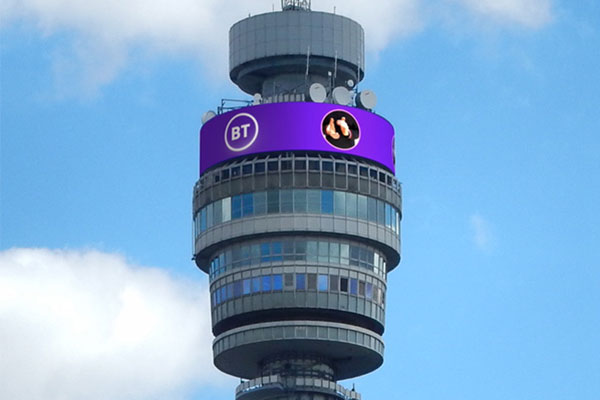BT’s share rebound safe after fibre-optic rollout update
Firm has a 10-year break from cost-based price regulation – although some hoped for 20.
18th March 2021 14:03
by Graeme Evans from interactive investor
Firm has a 10-year break from cost-based price regulation – although some hoped for 20.

A 20% rebound for BT (LSE:BT.A) shares since mid-February is largely intact today after the telecoms giant got much-needed clarity on the cost of rolling out full-fibre broadband in the UK.
Ofcom's announcement means BT will be able to achieve a “fair return” on its £12 billion investment, although there was some disappointment in the City that the regulator's ruling focused on a 10-year time frame rather than the 20 years some had hoped for.
Shares dropped 2% to 149p as a result, but this shouldn't disguise the fact that the mood around this widely held retail stock has brightened considerably since last summer's decision to axe its prized dividend for the first time since privatisation in 1984.
The FTSE 100 company fell below 100p last autumn. Today, Ofcom confirmed a light-touch approach would leave the Openreach arm free from cost-based price regulation for 10 years, but that it must allow rivals access to lay their own fibre products.
BT boss Philip Jansen said his company would now ”build like fury” in order to meet its target for next generation fibre into 20 million premises by the mid-to-late 2020s.
It has already passed almost 4.5 million premises, with today's regulation meaning that Openreach division should be able to ramp up to three million properties per year.
Jansen added: “Full-fibre broadband will be the foundation of a strong BT for decades to come and a shot in the arm for the UK as we build back better from this pandemic. Connecting the country has never been more vital.”
Another key development came yesterday with a shorter-than-expected three-day auction of 5G airwaves, involving BT's mobile phone arm EE and three other operators, including Vodafone (LSE:VOD).
BT shares closed 6% higher last night as EE made successful bids totalling £452 million, with the lots covering spectrum crucial for improved mobile coverage as well as for the bandwidth needed to meet demand from data-hungry connections.
The price tag was much lower than the £740 million the City thought BT may end up paying. Among the other operators, Three is paying £280 million, Vodafone £176 million and Telefonica (XMAD:TEF)-owned O2 £448 million.
UBS analyst Polo Tang said today: “We see the result as a positive for all UK operators and also positive for sentiment for the broader sector with 5G spectrum auctions almost finished across Europe.”
Sentiment towards BT shares has also benefited from chancellor Rishi Sunak’s two-year tax break on capital investment, known as super-deduction. However, analysts warn that higher corporation tax rates also revealed in this month's Budget pose a longer-term threat.
UBS's Tang recently reiterated his ‘sell’ rating on the FTSE 100 stock, warning that the Budget represents a £135 million a year hit to BT’s free cash flow over the long term.
- Stockopedia: eight growth shares at potentially cheap prices
- Take control of your retirement planning with our award-winning, low-cost Self-Invested Personal Pension (SIPP)
He remains cautious about the threat of rising competition from Virgin Media as well as the continued uncertainty on returns at Openreach beyond 2031. In addition, the company's actuarial pension deficit could constrain the dividend and options for mergers and acquisitions.
Deutsche Bank's Robert Grindle also added a note of caution today, warning that BT shares still lacked the infrastructure value and cashflow support of peers.
On the Ofcom decision, he added: “The broad regulatory environment for full-fibre to the home is now settled but it is clear that the ‘fair bet’ is no sure thing and if alternative full-fibre deployment scales than any consideration of a fair bet becomes moot.”
These articles are provided for information purposes only. Occasionally, an opinion about whether to buy or sell a specific investment may be provided by third parties. The content is not intended to be a personal recommendation to buy or sell any financial instrument or product, or to adopt any investment strategy as it is not provided based on an assessment of your investing knowledge and experience, your financial situation or your investment objectives. The value of your investments, and the income derived from them, may go down as well as up. You may not get back all the money that you invest. The investments referred to in this article may not be suitable for all investors, and if in doubt, an investor should seek advice from a qualified investment adviser.
Full performance can be found on the company or index summary page on the interactive investor website. Simply click on the company's or index name highlighted in the article.